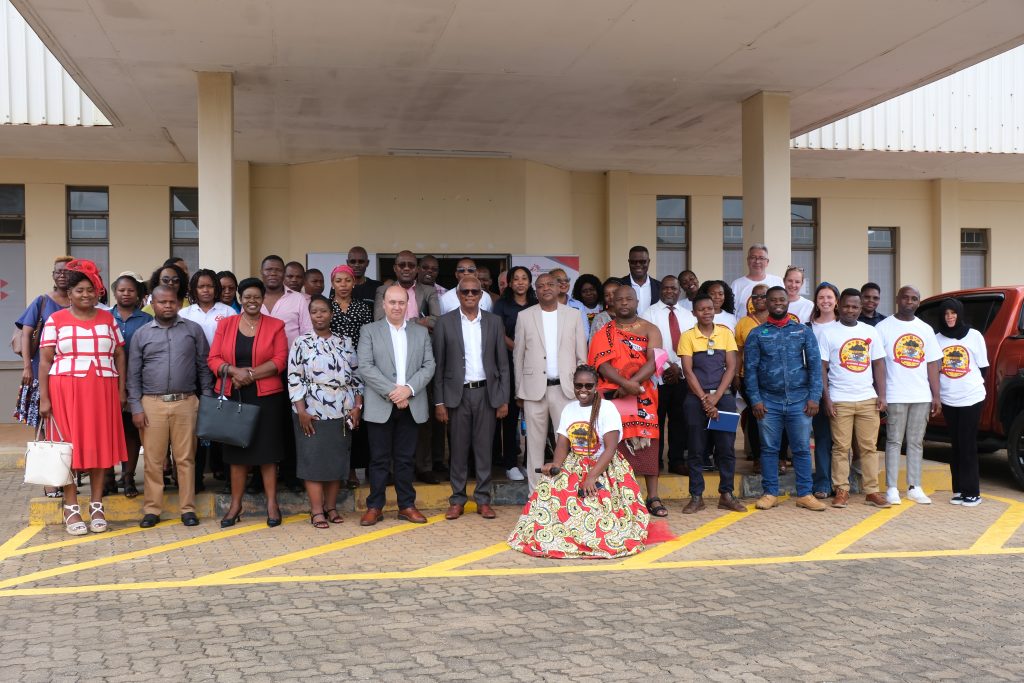Launched on 14 February 2024, the Sitsandziwe clinic has been busy over the past year providing comprehensive sexual health services, with a strong focus on mental health, to marginalised communities. These include adolescents, young women, LGBTQ+, factory workers and university students. The clinic’s emphasis on confidentiality and ‘safe space’ care has made it a preferred choice for many seeking healthcare support in the city of Manzini.
Over the past months, more patients have turned to Sitsandziwe, where services are free of charge.
Here are five things to know about Sitsandziwe clinic:
1. Launched on Valentine’s Day with a name embraced by the community
Launched on Valentine’s Day 2024, the clinic’s name Sitsandziwe, which means “We Are Loved” was chosen by staff and local community. Located in Matsapha, Manzini, an industrial hub in Eswatini, it provides essential sexual and reproductive health (SRH) services to groups who often struggle to access this healthcare. With an initial target of 10,000 consultations in its first year, the clinic exceeded expectations by 43 per cent, reaching 14,249 consultations in 2024.
2. National staff play a critical role
The Sitsandziwe clinic is run by a dedicated team of 28 locally hired staff and three staff on international assignments, ensuring integration. Having national staff helps break down language and cultural barriers, creating a safe and welcoming environment where patients feel comfortable accessing services and openly discussing their health concerns.

3. People and patients as partners
The clinic operates with a people-centred approach, involving patients as partners in the delivery of their healthcare. Through four roundtables, members of community groups actively contributed to shaping the clinic’s activities, including extending opening hours to better serve communities such as university students and factory workers, who prefer to attend after working hours. The clinic also collaborates with community-led events to improve outreach and health education.
4. Innovative health solutions
Unlike the standard verbal diagnosis of sexually transmitted infections (STIs) in Eswatini, Sitsandziwe offers laboratory-based STI testing, ensuring accurate results. This means diagnosis and treatment is more precise, making it more effective for patients. A total of 10,396 tests were performed, demonstrating the demand for these services.
The clinic also provides pre-exposure prophylaxis (PrEP) to prevent HIV, offering daily oral pills, PrEP rings and event-driven PrEP, which is commonly known as 2-1-1, where men can take 2 pills before exposure to HIV and the other 2 pills in the space of 48 hours. However, adherence challenges have affected PrEP uptake. To address this, injectable PrEP – a more discreet and long-lasting option – will be introduced in February 2025, requiring only one injection every two months.
5. Expanding consultations
Recognising the increase in cancer cases among the communities, the clinic conducted 1,437 human papillomavirus (HPV) screenings, with 35 per cent of people testing positive and undergoing further evaluation. Additional services provided in 2024 included 3,801 HIV tests and 280 mental health consultations, with six patients referred to psychiatric care.
Sitsandziwe has become a trusted and invaluable partner in healthcare and a safe space for many in the community of Matsapha. The clinic is ready to support many more people in the coming period.












